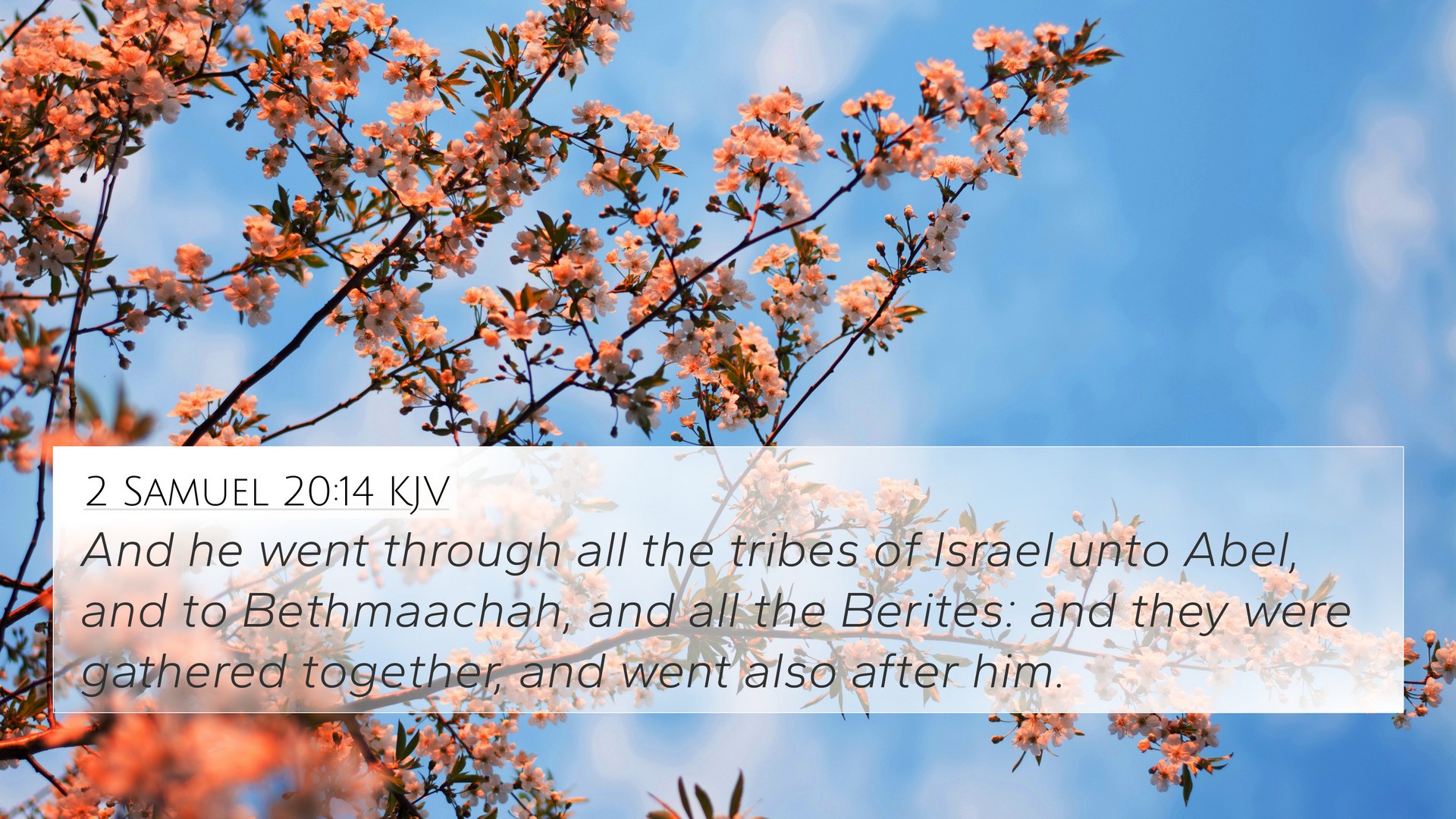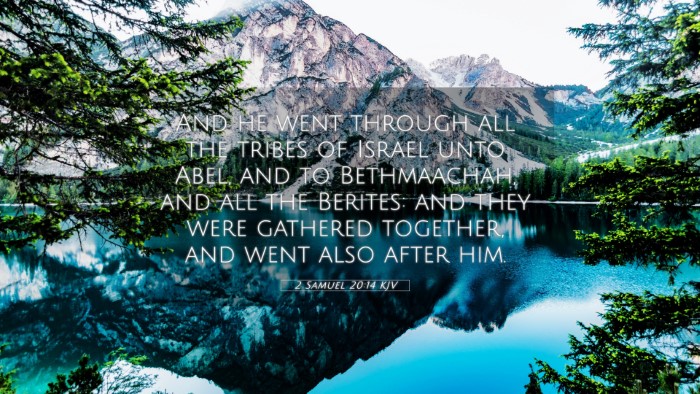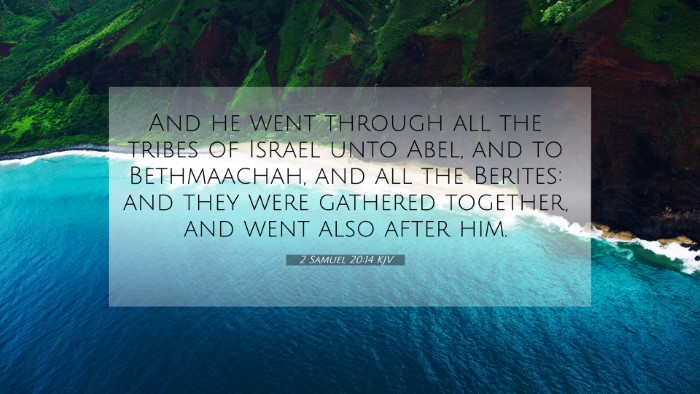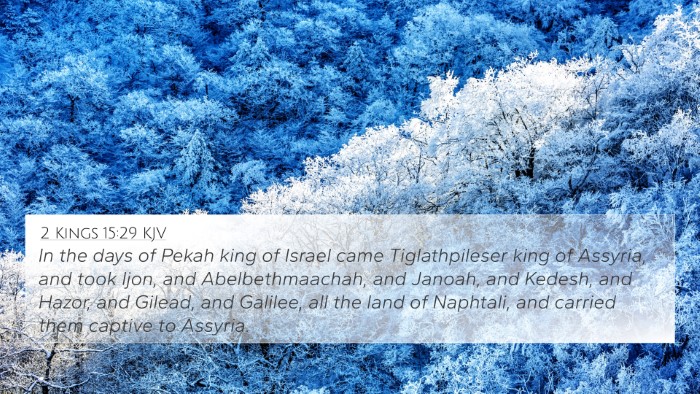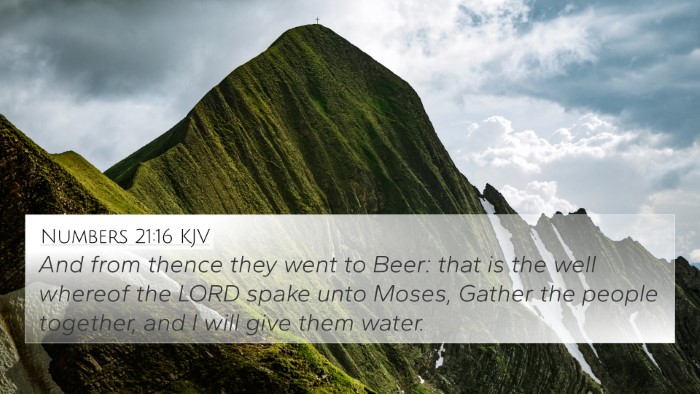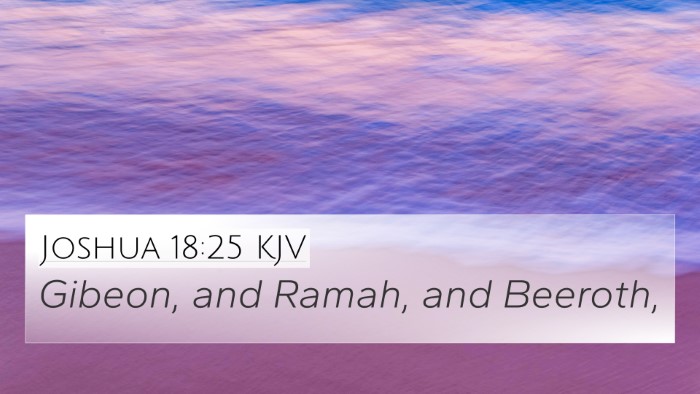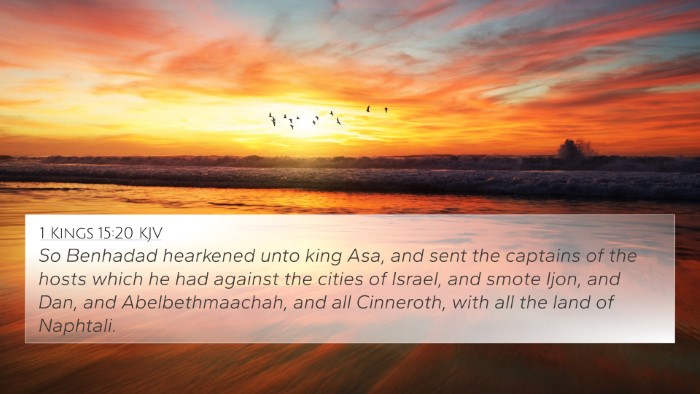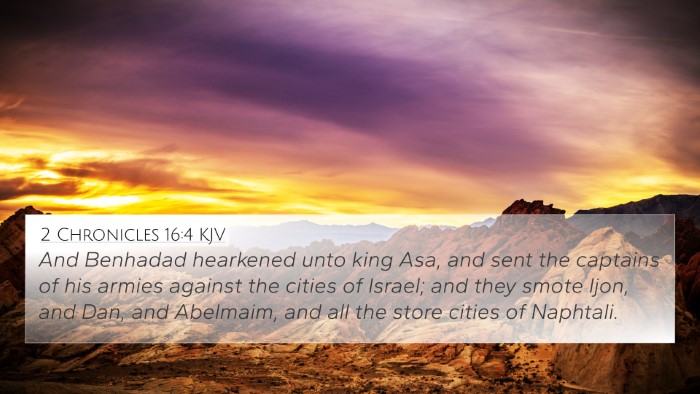Understanding 2 Samuel 20:14
Verse: "And he went through all the tribes of Israel unto Abel, and to Bethem, and all the Berites: and they were gathered together, and went also after him." (2 Samuel 20:14)
This verse captures the activity of Sheba as he incited the tribes of Israel to rally against King David, leading to a significant conflict that would ultimately affect the kingdom. It paints a vivid picture of the fragmentation and civil strife within Israel during this period.
Key Themes and Interpretations
This passage conveys themes of leadership, division, and the consequences of rebellion against divine authority. Below, we summarize insights from several public domain commentaries, including those by Matthew Henry, Albert Barnes, and Adam Clarke:
-
Matthew Henry
Henry explains that this verse illustrates the extent of Sheba's rebellion against David, highlighting the vulnerabilities within David's reign. He discusses how Sheba's actions indicated a growing discontent among the tribes and how this moment sets the stage for the necessary response by David to prevent further division.
-
Albert Barnes
Barnes presents a detailed analysis of the geographical locations mentioned—Abel and Bethmaachah—as significant cities where opposition arose. He emphasizes the idea that the unity of Israel was fragile, and Sheba’s rallying of the men reflects both a rebellion and the longing for restoration among the people following the internal conflicts of David's reign.
-
Adam Clarke
Clarke interprets this gathering as a demonstration of the complexities of leadership and loyalty among the tribes. He notes that David’s initial failure in handling the division created by Absalom’s rebellion made his position precarious. Thus, Sheba's actions would have been viewed as both a threat and an opportunity by various factions within Israel.
Bible Verse Cross-References
To fully appreciate the implications of 2 Samuel 20:14, it’s useful to examine cross-referenced scripture. Here are some relevant Bible verses that provide additional context:
- 2 Samuel 15:10 - "But Absalom sent spies throughout all the tribes of Israel..." – This verse highlights a previous insurrection and provides context for the environment of dissent.
- 2 Samuel 19:9 - "And all the people were at strife throughout all the tribes of Israel..." – Illustrates the civil unrest that continues into this chapter.
- 1 Kings 12:16 - "So when all Israel saw that the king hearkened not unto them, the people answered the king, saying, What portion have we in David?" – A vital link showing discontent with King David's leadership transcending generations.
- 2 Samuel 20:2 - "And every man of Israel went up from after David, and followed Sheba the son of Bichri." – Direct consequence of Sheba’s rebellion that demonstrates the factions forming within Israel.
- 2 Samuel 3:10 - "To translate the kingdom from the house of Saul, and to set up the throne of David over Israel and over Judah..." – The political context of David’s consolidation of power post-Saul's reign.
- 1 Chronicles 12:19 - "And there fell some of Manasseh to David..." – Reinforces how various tribes align and re-align politically based on prophetic events and leadership choices.
- Psalm 68:1 - "Let God arise, let his enemies be scattered: let them also that hate him flee before him." – A reminder that conflicts within Israel had a spiritual dimension, where faith played a critical role in nation-building.
Bible Verse Parallels
The events in this verse are paralleled in several other scriptures, reflecting the themes of rebellion, division, and the complexity of Israel’s leadership:
- Luke 11:17 - "But he, knowing their thoughts, said unto them, Every kingdom divided against itself is brought to desolation..." – A New Testament affirmation of the principle laid out in 2 Samuel regarding the dangers of division.
- Matthew 12:25 - "And Jesus knew their thoughts, and said unto them, Every kingdom divided against itself is brought to desolation..." – This emphasizes the ongoing biblical truth about unity central to effective leadership.
Conclusion
2 Samuel 20:14 encapsulates a critical moment for King David and the nation of Israel, revealing the fragile nature of leadership amidst internal conflict. Through the eyes of various commentators, we gain insights into both the historical and spiritual significance of this passage. Cross-referencing the verse with other scripture enhances our understanding of the various dimensions at play, from political strife to the moral implications of division in the covenant community. Such analyses not only deepen our comprehension of Biblical texts but also enrich our spiritual journey as we strive to connect the dots between scripture and life.
Tools for Bible Cross-Referencing
To facilitate further study, effective tools for Bible cross-referencing can be employed such as:
- Bible concordances
- Online Bible cross-reference guides
- Study Bibles with built-in cross-references
- Comprehensive cross-reference materials offered by theological schools
- Bible software with advanced search functions
By utilizing these resources, readers can find connections between Bible verses, deeply engage in comparative Bible verse analysis, and discover thematic links throughout scripture. This not only aids in personal study and sermon preparation but also enhances the understanding of inter-Biblical dialogue.
